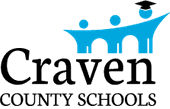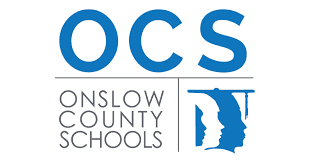What It Is / Why it Works
Managing change is a daily part of the human experience, yet at the organizational level, studies find typical success rates well below 50% for large change initiatives (Jørgensen, Owen, & Neus, 2008). Challenges are only magnified in education due to factors such as the variety of stakeholders involved, roots in tradition, and frequency of disruption, to name a few. Despite these challenges, educators often find themselves on the front line of leading transformative change in classrooms, school systems, and boardrooms.
RTI supports educators to diagnose the type of change sought and use that analysis to select change approaches best suited to the goal. One approach does not fit all situations. For example, is the change planned or emergent? Is the nature of the change structural or cultural? Is the change an incremental adjustment or a complete system transformation? Considering these factors at the start of any change-management effort can facilitate action and have a dramatic impact on the success and sustainability of the outcome.
When supporting implementation, RTI focuses on practical tools and techniques aligned to the change diagnosis. The facilitated implementation process focuses first and foremost on advancing the change objective. Simultaneously, support is designed to building local capacity through resources such as
- project management tools and digital templates,
- techniques for responding to saboteurs and detractors,
- motivational interviewing techniques for coaching,
- simulations and role play to reinforce the need for planning pivots and agility,
- storyboard tools to frame communications, and
- risk assessment and mitigation tools.
Potential Indicators of Successful Implementation
- Observable use of consistent planning methods and tools shared during change management training
- Self-reported improvement in confidence and command of change-management concepts (pre-post assessment)
- Evidence of improved stakeholder buy-in to priorities
- Clear plans in place with data-driven milestones and task accountability for both activity and decision-making
- Staff awareness of and ability to make connections among personal, team, and district priorities

RTI’s change management approach is based on five steps:
- Identify the issue or objective: What are we trying to change? Why are we trying to change it? How will we know if the change occurred?
- Diagnose the context to understand the type of change needed: Describe the context of the change? Is the change happening as a response to something or is it planned? Does the change require a more structural focus or is culture the emphasis? What kind of scale is desired for the change?
- Match change approaches to the unique conditions and objectives of the change: RTI’s change model is organized into three domains: Leadership, Momentum, and Organization. RTI works alongside teams to develop implementation plans and build the knowledge, skills, and tools to best address the objective.
- Implement the change: Often the longest step, the focus is application of the selected strategies tailored to the unique context and circumstances of the environment.
- Sustain the change: Sustaining change requires ongoing tuning to reinforce processes, procedures, and behaviors that reflect the targeted objective. This step focuses on the actions needed to continuously maintain and improve upon gains.
Project Examples
RTI partners with innovative schools, districts, states, and organizations to address education challenges. Here we highlight two of those partnerships.

Craven County Schools—Virtual High School Implementation
RTI supported Craven County Schools (CCS) with the design and launch of a virtual high school option to provide more options for families and better prepare the district to address extended disruptions due to inclement weather and disasters. RTI worked with the district leadership team and facilitated a change-management approach. Support included activities such as establishing the initial project plan, collecting community input, facilitating the development of partnership agreements, organizing the staffing plan, supporting student recruitment and selection processes, and supporting the development of communications materials.

Onslow County Schools—Change Management with Core Council
RTI supported three cross-departmental teams in Onslow County Schools (OCS) to prepare and implement improvement plans focused on graduation rate, literacy, and academic achievement. Support included workshops focused on the larger domains of change management while supporting individual skill development such as project planning, establishing buy-in, and assessing change derailers. This project included an accompanying change-management “toolkit” with templates, resources, and reusable tools that are customized for OCS’s ongoing use.
Change Management Experts
Our Education Services team is led by former teachers, principals, administrators, policy experts, and strategists who have the practical experience to translate ideas into action.

Michael Martin
Strategic Consulting Program Director
Center for Education Services
Mike Martin is a managing consultant at RTI International whose expertise includes K-12 education policy and K-12 instruction. Prior to joining RTI, Martin...
Expert in Strategic Planning
K-12 Policy Implementation
Meghan Sweeney-Doyle
Research Education Analyst II
Center for Education Services
Meghan Doyle is a strategic education consultant with significant experience at the executive levels of public education and county government. She has served...
Expert in Change Management
Expert in Strategic Planning
Resources
Questions?
Contact Education Services
at educationservices@rti.org